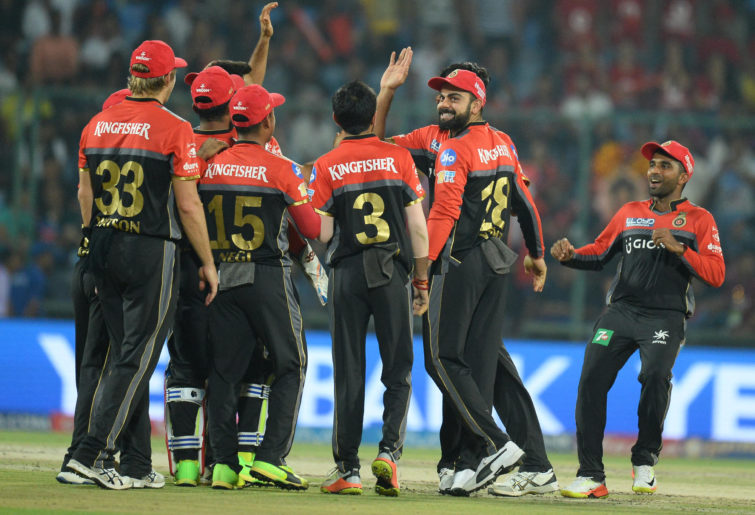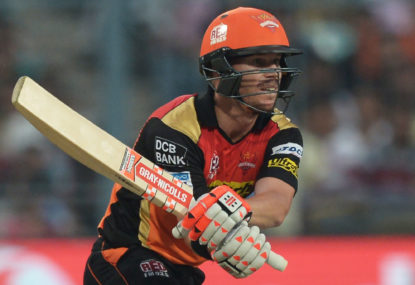Rampaging Roy Slaven and H.G. Nelson often use the phrase “When Too Much Sport Is Never Enough!” during their famous commentary sessions on Australian radio and TV.
I used to buy into that, especially with cricket. Back in the 80s and 90s, it seemed the Australian cricket summer was chock full of cricket, be it Shield games and Tests from October to mid-January, then lots of one day cricket to enjoy until mid-February.
Then along came T20 cricket and changed everything.
More to the point, along came cashed up domestic T20 tournaments and totally changed the cricketing calendar around the world.
In a recent piece, Tsat made this simple but telling comment.
“The IPL, as expected, is growing in size and will start to grow bigger and bigger, casting an ever-increasing shadow on the cricket calendar. With ten teams, the number of games will increase, and IPL will eat further into the summer cricket season of northern hemisphere countries.”
India cricket fans seem to have an insatiable desire to enjoy the IPL and franchises are willing to pay extraordinary sums to be involved.
In the recent IPL auction to add two new teams, an Indian multinational group paid approximately AUD$1.250 billion for one team (Lucknow), while another equity and investment firm paid a mere AUD$997 million for another team (Ahmedabad).
In this process, there were six cities shortlisted for consideration with many more missing out – this time round. It stands to reason these cities and others will want to be included in this competition in the years to come, so what impact might this have on cricket as a whole?
It’s safe to say the Indian Board will treat its cash cow with care, ensuring no international cricket is played by Indian teams during the two months this tournament lasts (27th of Feb to 21st of May 2022).
England will try to do likewise with its T20 Blast and The 100, ditto for Australia with the BBL. In fact, all nations involved in the eleven current T20 tournaments will want to protect their investment, by limiting international cricket, to free up its star players to become involved in these events.
Bear in mind, there are at least three other T20 tournaments slated to start within the next 12 – 18 months (one in Europe, one in the UAE and another in the USA) and the squeeze is going to be put on international cricket to find the time to play.

(Photo credit should read SAJJAD HUSSAIN/AFP/Getty Images)
At some point in the next three – five years, the ICC will need to make some decisions around where it sees cricket heading over the next decade and what role the ICC has to play, bearing in mind the he sums of money that are coming into domestic white ball cricket in particular.
The most obvious questions to answer are whether the ICC is the governing body and if so, what exactly does it govern?
Can it dictate to all countries the time allowed for these domestic tournaments? Can it direct countries to still play international cricket during these events? Can it put a cap on the number of current international cricketers getting involved in tournaments outside their own country? This seems to be presently managed by the various Cricket Boards, but there seems to be no consistent approach to how this is managed.
The biggest question that needs to be addressed is whether international cricket trumps domestic tournaments and that’s going to be the hardest for the ICC to sort out, given the massive amounts of money being put into all tournaments, but especially the IPL.
I don’t think there’s any reason why these various competitions can’t co-exist, as long as there is sufficient time to play both domestic and international series. If, for example, the IPL is set a maximum time frame of eight weeks for a domestic T20 tournament, it would force the organisers to get creative in how they managed this time and other aspects like expansion.
The ICC also needs to make a call on the future of international white ball series. All too often, teams are being asked to play ODI or T20 matches, which seem to be on the cricket calendar for no apparent reason.
In Australia’s schedule for January and February are series against South Africa (three ODI, three T20), New Zealand (three ODI, one T20) and Sri Lanka (five T20). I don’t get the purpose of these games, especially the T20s, given the T20 World Cup being played only a few months earlier and the ODI World Cup not taking place until October 2023.
I don’t believe any cricket is “meaningless” but it’s certainly hard to understand the need for these matches, most of which would have been forgotten shortly after they were played.
I also don’t think this process of the ICC being invested with authority needs to be antagonistic.
Clearly India is the dominant member, with such a massive audience and so much money, but Sourav Ganguly and the other BCCI Board members have to know just how important the involvement of all cricketing nations is the future of the game.
Naturally they want to make the IPL work, but they have to realise it works in large part because of the high quality international players it attracts.
If the BCCI is willing to be reasonable, then I’m sure some form of peaceful co-existence can be arranged. The same would apply to England, Australia and the other nations with their own domestic tournaments.
In an ideal world, the various cricketing Boards will work in harmony to maximise the profits from domestic cricket while making sure international cricket maintains its niche as the highest form of the game. The only way for this to happen is for the ICC to take overall control now.
I suspect interest in the sport will only grow and to make that growth both painless and manageable, the ICC must take control and set clear, firm guidelines that allow all to enjoy the various aspects of our great game.
If that happens then “too much cricket will not be enough”.































































































